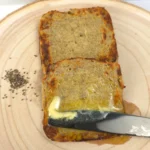Starting a ketogenic diet can be life-changing. You’ve heard about the incredible benefits: weight loss, boosted energy levels, and improved overall health. But transitioning to this low-carb, high-fat lifestyle can come with challenges.
Many people unknowingly make common keto mistakes that disrupt their state of ketosis, stall progress, or even lead to weight gain. Don’t worry—you’re not alone! This guide highlights the 19 most common keto mistakes and provides practical tips to avoid them.
Quick Wins for Keto Success
If you’re short on time, here are three quick fixes to supercharge your keto journey:
- Hydrate with electrolytes: Add salt, potassium-rich foods, and magnesium supplements to combat the keto flu.
- Track macros accurately: Use apps like CarbManager to ensure your carb intake stays low while hitting protein and fat intake goals.
- Plan meals ahead: Prepare keto-friendly snacks and meals with whole foods like grass-fed meats, fatty fish, and leafy greens.

The 19 Most Common Mistakes People Make on Keto
Let’s break down the top mistakes that could sabotage your keto goals.
1. Not Managing Stress Levels
Chronic stress raises cortisol levels, disrupting ketosis and causing weight gain. Stress also depletes magnesium, an important mineral for keto dieters.
How to Fix It:
Incorporate stress-reducing activities like yoga, meditation, or walks. Sip on calming herbal teas, prioritize sleep, and don’t hesitate to ask for help when needed.
2. Not Tracking Macros or Calculating Them Correctly
Tracking macros might seem tedious, but it’s a crucial step when starting keto. Macros refer to the carbs, protein, and dietary fat you consume daily. Proper tracking ensures you stay within your carb limit, eat enough fat to fuel ketosis, and avoid eating too much protein, which can hinder progress.
You don’t have to track forever, but it’s a good idea for the first few weeks to learn portion sizes and food choices. Tracking can also help you break through plateaus if your weight loss stalls.
How to Fix It:
- Start with an initial weigh-in and use an online macro calculator to determine your ideal fat, protein, and carb ratios.
- Use a food tracking app like CarbManager or MyFitnessPal to log every meal and snack.
- Set your calorie deficit to 0% at first until you’re fat-adapted, then gradually increase it (but not more than 33%).
- Recalculate your macros for every 10lbs (5kg) lost to ensure your plan evolves with your progress.
If you prefer a more convenient and motivating way to stay on track, check out my Keto Diet Journal for Beginners, available on Amazon. This journal makes tracking fun and organized! It includes sections for your goals, measurements, recipes, shopping lists, meal plans, and daily logs. Plus, you’ll find tips, motivational quotes, and plenty of space to plan for success.
👉 Get your copy here: My Keto Diet Journal for Beginners
This journal isn’t just a tool—it’s your keto companion, helping you stay focused, motivated, and accountable throughout your journey!

3. Skipping Meal Planning
Without meal prep, you risk grabbing non-keto options or overindulging in packaged snacks loaded with artificial sweeteners.
How to Fix It:
Plan a week’s worth of meals. Keep your kitchen stocked with low-carb vegetables, healthy fats, and simple snacks like hard-boiled eggs or avocado slices.
4. Not Drinking Enough Water
Keto increases the diuretic effect, leading to dehydration and potential muscle cramps.
How to Fix It:
Drink at least 3 liters of water daily. Add electrolytes through foods like avocados, leafy greens, and bone broth, or use an electrolyte powder.
5. Ignoring Electrolyte Imbalances
Low sodium, potassium, and magnesium levels can lead to fatigue, headaches, and even keto flu symptoms.
How to Fix It:
Sprinkle extra salt on meals and consume electrolyte-rich foods like salmon, spinach, and nuts. Magnesium supplements can also help.
6. Overindulging in Keto Treats
Store-bought keto-friendly snacks often contain sugar alcohols, hidden carbs, or low-quality ingredients.
How to Fix It:
Limit these products and focus on homemade options like fat bombs or whole foods like nuts, seeds, and olives.
7. Not Getting Enough Sleep
Lack of sleep raises insulin levels, disrupts fat-burning mode, and increases cravings for high-carb foods.
How to Fix It:
Create a bedtime routine, avoid screens before bed, and keep your room dark and cool for better sleep quality.
8. Eating Too Much Protein
Excess protein can kick you out of ketosis by raising blood sugar levels through gluconeogenesis.
How to Fix It:
Stick to moderate protein, around 0.8–1.6 grams per kilogram of body weight, depending on activity levels. Include sources like eggs, fish, and chicken.

9. Over-Focusing on the Scale
Weight loss on keto isn’t always linear. Water retention, glycogen stores, and muscle gain can lead to fluctuations on the scale.
How to Fix It:
Track progress through measurements, photos, and how your clothes fit. Celebrate improvements in energy levels and other non-scale victories.
10. Avoiding Fiber
Low-carb doesn’t mean low-fiber! Dietary fiber is essential for gut health, preventing constipation, and maintaining blood sugar levels.
How to Fix It:
Add fiber-rich non-starchy vegetables like cauliflower, spinach, and psyllium husk to your meals.
Read More:
The Top Low Carb Keto Fruits to Help You Beat Sugar Cravings
Your Guide To Keto Friendly Vegetables: What To Include And Avoid
11. Not Prioritizing Food Quality
Eating low-carb junk food can hinder your progress and impact overall health.
How to Fix It:
Opt for whole foods, including grass-fed meats, fatty fish, and healthy fats like avocado and nuts. Avoid inflammatory vegetable oils and processed options.
12. Being Impatient
Switching to keto is a major lifestyle change. Many people quit before becoming fat-adapted because they expect instant results.
How to Fix It:
Commit to consistency and trust the process. Long-term results take time, but they’re worth it!

13. Consuming Too Many Calories
While keto reduces hunger for many, some still overconsume calories, preventing fat loss.
How to Fix It:
Monitor calorie intake and portion sizes. Focus on high-quality fats and nutrient-dense foods.
14. Skipping Exercise
Combining keto with exercise enhances fat burning and improves muscle mass.
How to Fix It:
Incorporate strength training, cardio, or yoga into your weekly routine.
15. Ignoring Hidden Carbs
Condiments, salad dressings, and even keto-labeled products can contain hidden carbs.
How to Fix It:
Read labels, avoid processed foods, and make simple homemade alternatives like oil-and-vinegar dressings.
16. Drinking Too Much Alcohol
Alcohol affects ketosis and lowers energy levels, often leading to poor choices.
How to Fix It:
Stick to low-carb options like dry wine or spirits, and limit consumption to special occasions.
17. Neglecting Essential Nutrients
Cutting carbs can reduce your intake of certain essential nutrients from fruits or starchy vegetables.
How to Fix It:
Include nutrient-dense options like berries, leafy greens, and zucchini.
18. Perfectionism
Striving for perfection can lead to burnout and frustration.
How to Fix It:
Aim for progress, not perfection. Celebrate small wins along your keto journey.
19. Not Asking for Support
Keto can feel isolating if you don’t share your experiences or seek guidance.
How to Fix It:
Join a keto community or share your journey with friends and family for encouragement.style.

Final Thoughts: How to Avoid These Common Keto Diet Mistakes
By avoiding these common mistakes people make on keto, you’ll maximize your chances of success. Stick to your meal plan, focus on whole foods, and celebrate every milestone along your keto journey!
Read Next: Level Up Your Keto Knowledge
If you found this post helpful, check out these related articles to enhance your keto journey:
- The Ultimate Checklist for Starting Keto: Ensure a smooth transition to keto with this step-by-step guide covering everything you need to succeed.
- Foods to Avoid on Keto Diet: Discover the foods that might unknowingly disrupt your state of ketosis and learn smarter swaps to stay on track.
- High Fiber Vegetables for Keto: Fiber is essential for gut health! Explore the best non-starchy vegetables to include in your meals.
- Keto Diet and Intermittent Fasting: A Perfect Match? Combine two powerful tools for weight loss and overall health with this comprehensive guide.
- 6 Key Facts About Keto Diet: A beginner-friendly overview of the ketogenic diet, breaking down its benefits and how to get started.
- Keto-Friendly Crunchy Vegetables: Craving a satisfying crunch? These vegetables are perfect for adding texture to your keto meals without breaking your carb limit.










Hello, You have Great content
Thank You!
Thank you! I’m glad it is helpful for you.
Pingback: ALL YOU NEED TO KNOW: HOW TO START KETO DIET – KETO DIET GUIDE FOR BEGINNERS - Lose Weight and Be Healthy with Coach Rally